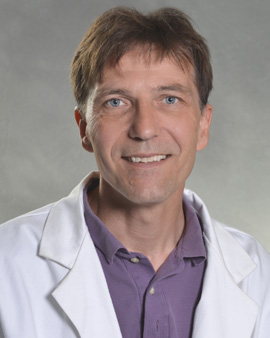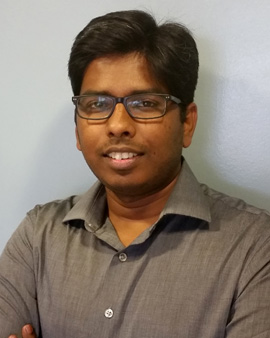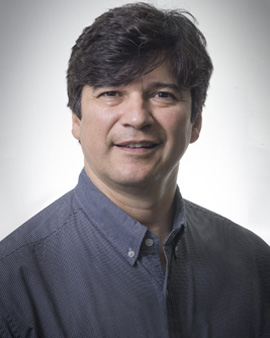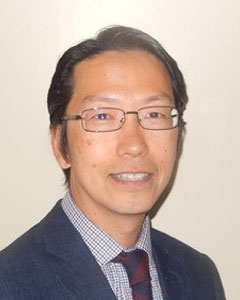The Department of Biochemistry and Molecular Biology is dedicated to the education of medical and graduate students in biochemistry, molecular biology and nutrition. Researchers in our highly interactive department utilize cutting-edge techniques to discover the molecular basis of disease, including research focused on cancer, infectious disease and aging.
Biochemistry research at the College of Medicine is in part driven by analytical technologies and instrumentation, such as protein production and purification, spectroscopy, structure analysis, mass spectrometry, and biosensor-based protein-protein interaction analysis. Molecular and cell biology are major experimental approaches complementing biochemistry and enable the elucidation of cellular processes at the biochemical level related to human disease.
The department consists of 12 faculty, including 2 full-time educators and 10 independent laboratory heads, with externally funded programs. Our outstanding faculty and their exceptional teams of research scientists, postdoctoral scholars, graduate students and undergraduate researchers are key to our success. The collaborative nature of the department and the wide array of scientific approaches, from structural biology and biophysical methods, to cell biology and animal studies, contribute to the exciting research environment.
Our department has a long history of outstanding educational programs for both PhD and MS candidates. Our graduate programs include:
Our research-intensive graduate programs offer high quality mentored research experiences. These train our students to be successful scientists and independent thinkers, prepared for a variety of careers. Students from our programs hold careers in a range of scientific areas including academic and industry research, teaching roles, government positions and science writing and policy.
We continue to expand the department by hiring additional faculty with interests in new areas of biochemistry and molecular biology, afforded by the rapid expansion of technical capabilities and new discoveries in basic biology.
Research at the Department of Biochemistry & Molecular Biology
Our major disease focus has been on cancer. Cancer is a multifaceted disease and basic biochemical/molecular research on a broad range of cellular processes has been extremely powerful in understanding cancer biology—from transformation, to metastasis, to response, to treatment. Cancer biology is a "big tent" under which many disparate areas of inquiry can be united and focused.
The cancer biology research program emphasizes:
- Control of cell proliferation (Noguchi, Reginato)
- Signal transduction (Noguchi, Reginato)
- DNA replication and repair (Berkowitz, Noguchi)
- Cancer metabolism (Reginato)
- Metastasis (Reginato)
- Computational biology (Somarowthu)
- Transcription and epigenetics (Reginato, Noguchi, Sell, Somarowthu)
- Apoptosis (Reginato, Noguchi)
- Aging (Noguchi, Sell)
A second research theme is directed toward understanding structure-function relationships in biological macromolecules. This includes studies of:
- Membrane proteins (Loll, Chaiken)
- Cytoskeleton and signal integration (Padrick)
- Receptor-ligand interactions (Chaiken, Loll)
- Enzymology and drug design (Loll, Chaiken)
- Post-translational protein modifications (Noguchi, Reginato, Strochlic)
- Molecular-level studies of specific diseases, including:
- HIV and hepatitis (Chaiken, Abrams)
- Malaria (Vaidya)
- Sepsis (Loll)
- Neurodegenerative disease (Loll, Saunders)
- Aging (Noguchi, Sell)
- Infertility and developmental defects (Berkowitz, Strochlich)
Another initiative arising from this approach is in the development of small molecule inhibitors (Loll, Chaiken, Reginato), including development of new antibiotics (Loll).
MEET OUR NEW FACULTY – Ridhdhi Desai, PhD
The Department of Biochemistry & Molecular Biology is excited to welcome Ridhdhi Desai, PhD, as faculty at Drexel University College of Medicine. Prior to joining Drexel, Dr. Desai was a research fellow at Joslin Diabetes Center and postdoctoral fellow at Beth Israel Deaconess Medical Center at Harvard Medical School, where she focused on investigating the mechanisms underlying initiation and progression of precursor lesions in pancreatic cancer. Read more.
Upcoming Events
There are currently no upcoming events.
News & Announcements
Researchers from Drexel’s College of Medicine have identified new drugs that show early success in shrinking breast cancer tumors that have metastasized in the brain. The discovery marks the first time that targeting a key metabolic enzyme in cancer cells in the brain has shrunk tumors in a mouse model. Read more.
The annual Golden Apple Awards recognize outstanding service, teaching and mentoring by Drexel University College of Medicine faculty and professional staff. The honorees are nominated by each class of medical students who vote to determine the award winners. Read more.
Dean’s Travel Award
Congratulations to Elizabeth D’Lauro, recipient of the Dean’s Travel Award for the spring 2024 award cycle. D’Lauro is a PhD candidate in the Biochemistry of Health and Disease program. The Dean’s Travel Award is meant to partially defray the cost of attending a scientific meeting at which a graduate student is making a presentation, that is related to the student’s graduate study. In this cycle, each award was offered at the maximum of $750.00 per awardee.
2023 Sydney Kimmel Cancer Center Drexel University Trainee Retreat
Emily Esquea, MS, Reginato Lab, was awarded 1st place for Best Trainee Short Talk. Nima Sarfaraz, MS, Bouchard Lab, was awarded 1st place for Best Trainee Poster Presentation.

Mauricio J. Reginato, PhD, professor, has been appointed chair of the Department of Biochemistry & Molecular Biology effective February 2, 2024. Dr. Reginato was appointed interim chair of biochemistry and molecular biology in the summer of 2021, and has been a faculty member of the College of Medicine since 2004. Read more.
Awards & Grants
The Commonwealth Universal Research Enhancement (CURE) Program funds collaborative biomedical research that aims to improve the health of Pennsylvanians. Read more.

Christian Sell, PhD, associate professor of biochemistry and molecular biology has received an Alzheimer’s Disease Initiative supplement to his NIH R01 award Novel longevity enhancing pathways regulated by mTOR.

Srinivas Somarowthu, PhD, assistant professor of biochemistry and molecular biology has received from NIGMS an NIH R01 grant entitled Structural and Functional Studies of lncRNAs in Gene Activation.

Alexej Dick, PhD, and Mauricio Reginato, PhD, Receive Coulter-Drexel Translational Research Partnership Seed Grant
Alexej Dick, PhD, research assistant professor, and Mauricio Reginato, PhD, professor and interim chair, both in Department of Biochemistry & Molecular Biology, were awarded a Coulter-Drexel Translational Research Partnership Seed Grant in 2022. The funds will support their project “Pharmacological Inhibition of the Human ACSS2 Protein for Therapeutic Intervention for Breast Cancer Brain Metastatic Tumor Growth.”


Christian Sell, PhD, and Eishi Noguchi, PhD, Publication in Molecular Biology of the Cell
Christian Sell, PhD, associate professor of biochemistry and molecular biology, and Eishi Noguchi, PhD, professor of biochemistry and molecular biology, along with Timothy Nacarelli, PhD molecular and cell biology and genetics ’16, Ashley Azar, PhD biomedical science ’17, Manali Potnis, Manali Potnis, PhD molecular and cell biology and genetics ’22, and colleagues published “The Methyltransferase Enzymes KMT2D, SETD1B, and ASH1L Are Key Mediators of Both Metabolic and Epigenetic Changes During Cellular Senescence” in the May 1, 2022, issue of Molecular Biology of the Cell.
In the Media
July 12, 2024: Researchers from Drexel’s College of Medicine have identified new drugs that show early success in shrinking breast cancer tumors that have metastasized in the brain. The discovery marks the first time that targeting a key metabolic enzyme in cancer cells in the brain has shrunk tumors in a mouse model. Read more.
February 26, 2020: Christian Sell, PhD, an associate professor in the Department of Biochemistry & Molecular Biology, led research into the use of rapamycin to treat skin aging that was featured in MIT Technology Review's article on “10 Breakthrough Technologies 2020.”
December 11, 2019: Christian Sell, PhD, associate professor in the Department of Biochemistry & Molecular Biology, and colleagues recently published research showing a possible new use for Rapamycin — as a way to slow skin aging. The findings were covered by Medical News Bulletin and Gilmore Health News.
November 26, 2019: Christian Sell, PhD, associate professor in the Department of Biochemistry & Molecular Biology, was quoted in United Press International, Specialty Medical Dialogues and Medical Life Sciences about his research exploring the use of rapamycin, a drug typically used to prevent organ rejection in transplant patients, to reduce signs of skin aging. His research and findings were also covered in Economic Times Healthworld, ScienceBlog, McKnights Long-Term Care News, Medical News Today and Derm City.
May 11, 2016: Irwin Chaiken, PhD, a professor in the Department of Biochemistry & Molecular Biology, was quoted in a Philadelphia Gay News story about his research team's receipt of a Campbell Foundation grant to study new treatments for HIV.
See all College of Medicine faculty in the Media
Back to Top